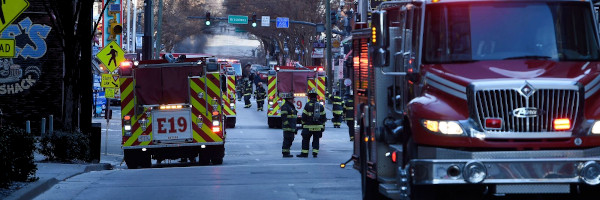Integrated Analytics and Scheduling of Emergency Responders Under Uncertainty
| Integrated Analytics and Scheduling of Emergency Responders Under Uncertainty | |
|---|---|

| |
 Emergency Responders | |
| Team Organizations | Vanderbilt University |
| Team Leaders | Gautam Biswas |
| Participating Municipalities | Nashville TN |
| Status | Development |
| Document | None |
Description
This project will use historical data to create models for various safety and emergency incidents across metropolitan Nashville, establish causes, and use this information to identify appropriate equipment requirements in different situations. This analysis will be combined with historical traffic and delay information to ensure the emergency vehicles are distributed at optimal locations and proactively maintained. During an incident a real-time decision support system will guide vehicle dispatch.
Challenges
- Identifying root causes for accident occurrences, and developing accident types
- Combining real-time analytics with models created from historical data to make effective dispatch decisions
- Developing a prognostics model from engine telemetry to improve overall reliability of services
- Creating models that preserve data privacy.
Solutions
TBD
Major Requirements
- Collect data about safety incidents, and environmental conditions during accident occurrences.
- Create models that correlate the emergency response delay with time of day and traffic conditions.
- Develop and implement an algorithm for placing emergency equipment in optimal locations
- Develop a prototype of a computer aided dispatch system. This system will be initially developed only as a decision support system. Based on the success, it will be integrated into the live dispatch system.
Performance Targets
| Key Performance Indicators (KPIs) | Measurement Methods |
|---|---|
|
We will measure the effectiveness of our approach by
|
Standards, Replicability, Scalability, and Sustainability
- We will use standard platforms based technology to implement the engine. REST based APIs will be available that could be used by other companies to create third party applications
- We will document all the data features and the architecture we are using. This way other cities and fire departments will be able to replicate the system.
Cybersecurity and Privacy
TBD
Impacts
Improved safety.
Demonstration/Deployment
- Phase I Pilot/Demonstration:
The first phase will show basic data analysis from the safety incidents.
- Phase II Deployment:
The second phase will include a website and smart phone applications for first responders.